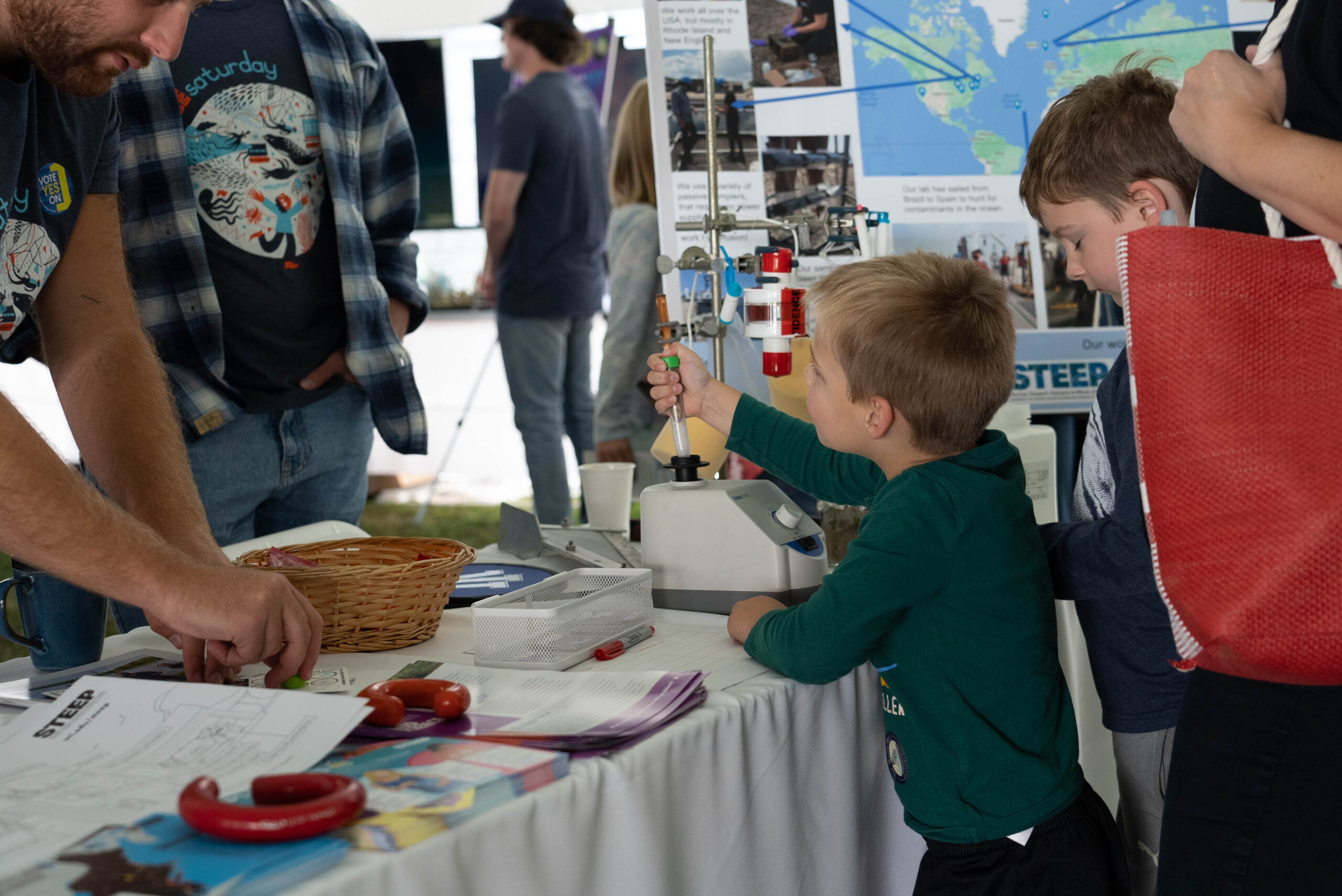Graduate School of Oceanography sees large turnout for Science Saturday event
Pictured: A spark to a curious mind at the GSO’s Science Saturday. PHOTO CREDIT: Eddie Melfi | Contributing Photographer
The Graduate School of Oceanography (GSO) hosted their “Science Saturday” event over this past weekend, giving attendees a chance to explore recent developments that graduates have been working on while earning their degrees.
The all-day event showcased exhibits run by graduate students, who created interactive presentations to share their research.
“It’s all about exposure, showing how ocean science really does work its way into our lives,” Peter Hanlon, director of public engagement at the GSO, said. “There’s all these different parts of the economy that depend a lot on the science and the management work that happens here at GSO and in the Bay Campus in general.”
An estimated 2,000 people attended the event, bringing in families and children who were eager to experience the hands-on experiments created by students. Exhibits included research on shoreline erosion, conservation of coastal wildlife and demonstrations of marine robotics.
One experiment gave attendees the opportunity to extract DNA from strawberries by simply mashing the berry and adding water, dish detergent, salt and isopropyl alcohol.
“We’re showing kids how you go through an extraction protocol to get the DNA out of a strawberry in the same way that we would do it out of phytoplankton,” said Katie Roche, a Ph.D. student studying phytoplankton.
This experiment captivated many children’s attention, and the end result of this experiment was a bubbly concoction collected on a cotton swab.
Tours of the campus were also offered, which were sold out prior to the event. Tours went through the Rhode Island Nuclear Science Center, the Interspace Center and the Marine Geological Samples Lab, all housed on URI’s Narragansett Bay Campus.
Hanlon wants the public to talk to the entire community at GSO to voice their opinions and get involved with the research being conducted.
One main focus of holding these events is to educate younger generations on the impact they can have on ocean science according to Hanlon. The variety of career paths in this type of science is not limited. He mentioned that careers in computer technology, communications and education are just some of the paths graduates have gone on to pursue through the GSO.
Isabel Whaling, another graduate student at the GSO, spoke about how her experiment dealing with soil erosion is educating the youth on the future of coastal communities.
Isabel’s exhibit demonstrated how plants can prevent coastal erosion through the use of sand pits, rocks and pools of water.
“A lot of them are getting really excited because their families have beach houses…so they see these processes happening every day, but don’t really know the right words to use for it,” Whaling said.
“Rhode Island is such an eco-conscious state,” Whaling said. “It’s really great to be able to communicate all the science that we’re doing here to all of the young people because young people are the future.”
The URI GSO is a major contributor to Rhode Island’s goal of a “blue economy”. Peter Hanlon defined the blue economy as an economic development that will depend on ocean resources being collected in a continually renewable way.
Many of the programs in the Graduate School of Oceanography are trying to develop students’ abilities to discover new, advanced ways for Rhode Island to become more sustainable overall.





